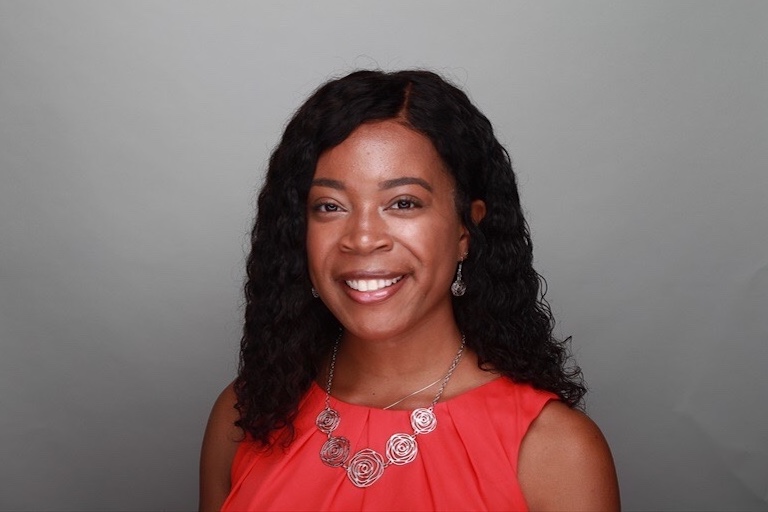Alyssa Burr, who earned a B.A. in Journalism with a concentration in editorial reporting and a minor in broadcast journalism, is already taking her career by storm despite her recent graduation during a pandemic in 2020. Since July of 2020, Burr has worked as a News Assistant at The New York Times tracking the coronavirus. During her time at MSU, she worked as a reporter and anchor for Focal Point, covering breaking news like the Larry Nassar story. She was also the president of the MSU Chapter of the National Association of Black Journalists during her senior year.
At Michigan State University, we invited her to share her experiences in a Q&A with ComArtSci.
Q. When you look back at your life and work so far, what gives you the most pride?
A. The fact that I have a family who is there to be genuinely proud of me for achieving my goals but also supports me when I need it is something that I take a lot of pride in, not everyone can say the same and I'm thankful.
Q. What inspires you to work toward your goals and accomplishments?
A.My community inspires me a lot. Where I grew up, there's not a lot of opportunities at our disposal, let alone for a little black girl from the inner city, so I want to pave ways for "future me's." Maybe when they come up, the path won't be so hard for them.
Q.Could you describe a typical day in your professional life?
A. A typical day in my professional life looks like waking up and getting ready for the day, and then sitting back down to open my laptop so I can get started with my workday. I work remotely so a lot of the time I'm corresponding with my team and my editors through Slack or Gmail, and since we work on a pretty large team we are constantly communicating. Since I'm a member of the coronavirus tracking team at The Times, I spend my days entering Covid-19 related data into spreadsheets.
Q. What are some of the greatest challenges and opportunities working in your field?
A. The greatest challenge getting into this field I would say is that journalism is very competitive. While there are a lot of different avenues of journalism, there are a lot of young, hungry journalists who want the same position as you- everyone can work a camera or write a story, the key is to make yourself stand out.
Q. What would you consider to be the defining point in your life or career?
A. I would say working for The New York Times straight out of undergrad is one of the greatest highlights of my career so far. Not only is The Times a well respected and known media company, but I've truly enjoyed working with everyone I've met so far within the company.
Q. What is the most important lesson you have learned along the way?
A.The most important lesson I've learned along the way is that your time will come. I know especially with social media it seems like others are always getting the better opportunities or some people might get the better stories, etc etc. But it'll all come together one day, stay focused and don't worry.
Q. What opportunities did you have at MSU or ComArtSci that helped you get where you are today?
A. The Michigan State University Association of Black Journalists was one opportunity I never took for granted while at MSU. I knew I wanted to be a member right away since MSU is a PWI (Predominantly White Institution) and I wanted to be around people like me within my field. Just being associated with the organization in general brought on many opportunities, but once I joined the executive board and eventually became President, I was so grateful for the larger network that was available to me.
Q. How do you give back to your community or motivate others to work toward the common good?
A. I feel like as a journalist that is what I'm supposed to do. I'm very conscious of the fact that whatever work I publish, it can help my community by keeping them informed, especially with the Covid-19 related work I do now.
Q. What advice would you give to MSU and ComArtSci students?
A. Your professors are a resource! MSU is a really big school, and I'm sure that everyone has been told time and time again to meet with professors, go to study hours or whatever the case may be, but that goes for the professors in ComArts even more. As a student within the College of Communication Arts and Sciences, you have industry professionals at our disposal everyday. Get to know them, allow them to get to know you, and you'll always have a reference for a job or just a person to go for advice on matters involving your field.
Q. If you could offer a message of comfort or support, what would you say directly to students who are studying at MSU in these uncertain times?
A. Hard times don't last forever. Use the extra free time you may have from taking virtual classes and put it towards learning a skill, creating a business or even just taking care of yourself emotionally, mentally and physically and you'll come out the other side better.I promise.
Q. From your experience in the global pandemic, what would you most like to share with the Spartan community? A. It sounds really sappy, but love one another while you can. Love is an extremely powerful emotion that I believe we all owe to one another just on the bases of being a human being. That argument will be over, feelings won't stay hurt forever and grudges aren't meant to be held. We're living on borrowed time, we have to remember to be kind now.
By Demetria Bias
